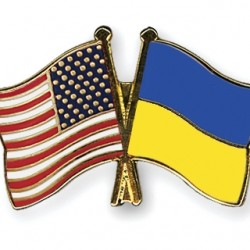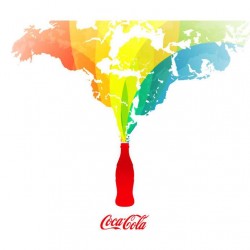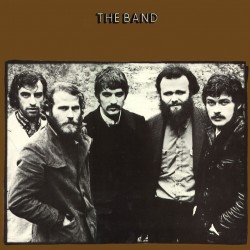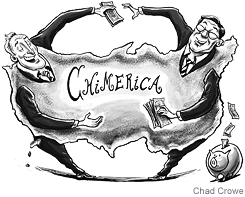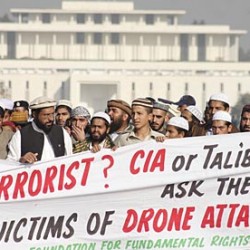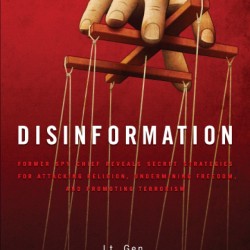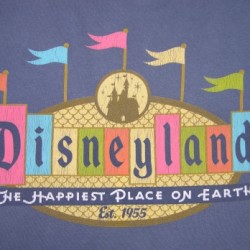I cannot thank you enough, Wyatt, for this great and thoughtful effort to answer my very small but most painful question, like a thorn in my foot. I shall never forget it.
With my apologies to the other forum members, I shall take it up very carefully, and welcome those not interested in my hard little question to simply ignore this very long response. As I said to Josh Trichilo earlier, how we answer such hard little questions sometimes defines us very deeply, and we, or rather I, must be very careful.
------
To the fatal ‘Interim Committee’ meeting then, and Mr. Newman’s very assured convictions.
During the morning, Ernest Lawrence had suggested giving the Japanese a harmless demonstration before using the bomb for military advantage. This suggestion was taken up during the noon hour. General Marshall was not present; perhaps the outcome would have been different had he been able to argue for the moral position he had presented to Stimson.
If so, then why is it “easy to see” why it was "shot down"?
And, if “perhaps the outcome would have been different”, history would have been different as well. Perhaps the demonstration would have failed, but undoubtedly America would have tried.
Without him, the demonstration idea was shot down. In hindsight it is easy to see why.
Where would such a demonstration be held? In neutral territory, as Alexander Sachs suggested, with many observers from other nations?
Why?
Much time would be required to make arrangements,
Proof?
no one knew the bomb would work,
According to the Jennings report, they were sure of the first bomb.
and a dud would be disastrous.
Thus, a ‘dud’ was not likely.
But even if it was a dud, where is the proof that this would be “disastrous”. If it works even one time, it may work again. Mr. Newman is playing with absolutes and certainties, when possibilities are all that truly matter, especially to the moral question.
There was no warrant at all for believing that General Anami Korechika and his military colleagues would give up their determination to fight to the bitter end however spectacular the demonstration.
Proof (for the absolute claim)?
And even if so, given the stakes involved, why is this a reason for not trying?
The essential logic of Mr. Newman’s analysis is sophistical. Please see also several examples below.
Since the military firmly controlled what appeared in the Japanese press, the people would not be informed no matter what demonstration was staged.
This does not matter (enough).
If the demonstration were held very high over a Japanese city, where the fireball could be seen but would do little damage, the Japanese generals would treat it as so much pyrotechnics.
He seems a very confident (and absolute) psychologist, as Mr. McCloy below.
No one present at the luncheon believed that a bloodless demonstration would impress the Japanese military.
Colonel Stimson (and Mr. Lawrence) clearly thought it worth a try.
Mr. Newman is again being sophistical. The question is not one of ‘would’ but of ‘could’. The argument was not, and need not be, that it would, but merely that it could impress the Japanese military, and the ‘burden of proof’, given the horrific consequences, is not on Colonel Stimson but on those rejecting the attempt. Mr. Newman’s entire argument rests on this mistake.
If the time and place of a demonstration over a sparsely populated area of Japan were announced, the remnants of Japan's air force could still interfere with the planes.
This has been thoroughly proven incorrect. As the Jennings report confirmed, America had complete control of the sky.
American prisoners of war could be brought to the spot.
Not to a neutral site.
Should the demonstration take place anyway, the generals could again deny that the weapon was lethal.
Here again, sophistry. The question here is one of ‘would’ not ‘could’. Would they? For certain? Proof?
And there was still the dud possibility.
Please see above.
The Alamogordo test was of a stationary device, not a bomb.
As stated, they had no doubt the first bomb at least would work. And even if not, this too is no reason not to try.
Further, a demonstration, however impressive, would preempt the shock value of the weapon,
As Americans would say, ‘So what?’.
and it would waste a bomb, very few of which would be available in 1945.
The consensus is: one every two weeks.
The consensus on 31 May was "no demonstration."
But, as the reasons supplied by Mr. Newman are for me weak, or worse, and the ‘stakes’ are so high—historic infamy on a par with Hitler (at least in the mind of Colonel Stimson, the Secretary of War)—I remain troubled by the question, Why did they not at least try?
------
To Mr. Compton:
The difficulties of making a purely technical demonstration that would carry its impact effectively into Japan's controlling councils were indeed great. We had to count on every possible effort to distort even obvious facts. Experience with the determination of Japan's fighting men made it evident that the war would not be stopped unless these men themselves were convinced of its futility.
As with the sophistry of Mr. Newman, this is only a reason not to expect success, not a reason not to try. My question is why did they not try.
The point of the knife is very sharp: Did America do all it could to avoid the slaughter of 100,000 innocent women, children and old people, or did it not?
------
To Dr. Szilard:
I think it is clear that you can't demonstrate a bomb over an uninhabited island. You have to demolish a city.
Proof? How can he prove this, beyond any reasonable doubt? He is a physicist, not a psychologist. Finally, only God can be sure of this. And let us not forget, as it is so easy to do: we are not talking here about a Pavlov experiment. We are talking about the horrific destruction of 100,000 innocent women, children and old people. The magnitude of the consequence means that any doubt, any doubt whatsoever, must be decisive.
(Also, Dr. Szilard seems to have been more preoccupied with his ‘Place in History’ (e.g., the cold war ‘doomsday’ threat) than with innocent Japanese lives.)
------
To Mr. McCloy:
The decisions recommending the use of the bomb, made by the interim committee formed by President Truman, were reached after thorough exploration of every possible angle: Could you have a demonstration? What would be its effects? We had not at that time seen the explosion at Alamogordo, but I can just say that if I had been a Japanese observer and seen the bomb go off at Alamogordo, I would not have advised surrender. It's one thing to see something go off, causing no damage at all but creating a great ball of fire and obviously of tremendous power, but it's another thing to say: "Well, now, they set this off on a tower; maybe it weighs 50 tons. How do we know they can deliver it?" And I am sure that anyone who was a sound thinker
Probably, but certainly? The burden of proof here does not lie on those who wished to try, but on those who rejected even the attempt. And surely the proof must be very strong indeed to justify the slaughter of so many innocent people.
would have said: "No, that doesn't convince us. In the first place, would they have another?" For example, the German scientists believed that it would be impossible for us to make an atomic bomb, and that if we did we could make only one.
Then explode two.
Okinawa was over, the war was in a ‘pause’. What was the hurry?
“What if the Russians get involved? Then we won’t be the only victors to be lord over Japan. Thus, let us hurry and destroy a 100,000 innocent people.”
Is this the argument?
------
To Mr. Franks:
It took twenty-four hours for Tokyo to learn of the damage to Hiroshima and the American claim that it was inflicted by an atomic bomb. The militarists immediately erected two lines of defense: first, whatever struck Hiroshima, it was not an atomic bomb; second, even if it was an atomic bomb, the difficulty of manufacturing fissionable material to power the weapon meant the U.S. could not have that many bombs, or that the bombs would not be that powerful. These conclusions were the fruit of Japan’s own efforts to build an atomic bomb. These exertions provided no useable weapon, but did instruct Japan’s leaders in the difficulty of producing fissionable material. This revelation also demonstrates the futility of any single demonstration of an atomic weapon.
Then explode two. And if “the militarists” do as you think they will do, you have done what you could. You have at least tried to save the lives of all those people, and it is (if anyone can be blamed in such a horrible situation) the militarists’ fault, not yours any longer.
Further, the news of Soviet intervention did not prompt Japan’s military leaders to call for an end to the war. On the contrary, the three top leaders endorsed plans to continue the war and even to abolish any vestige of civilian government—an extremely ominous development that leaves open the question of how the war might have ended absent that mechanism for intervention by the emperor.
A perfectly specious argument for not trying.
-------
My thanks again, Wyatt, for this very fine research. It is so broad and thorough, and the arguments so weak, that I feel I am finally beginning to sense an answer to my question at last, and can soon ‘get out of the way’.
If you will permit me, I would like to take up your ‘racist’ comment first, and then conclude by considering the heart of your response.
With respect to the racism question,
First, I would prefer not to label this as a ‘racism question’, if possible. ‘Racism’ is a broad, ‘loaded’ and simplistic term, used too easily and with much built-in meanings that can distract us from the special context we are dealing with. I would prefer, if you are willing, to think of this as a question of dehumanization, which you rightly noted was increasing over the course of the war. As with the Jews (and to a lesser extent the Slavs) for Hitler, the Japanese had somehow ceased to be fully human for the ‘Interim Committee’, I think. ‘Racism’ may be a species of this problem, but this problem, this process, runs much deeper than the much-talked of rhetoric of racism.
I cannot answer that conclusively. But after reading accounts of how Allied war planners optimized bomber loads over Germany to maximize the number of civilian deaths per bomb, I'm not sure that it played that large a factor. It seems like the Allies were willing to do whatever they felt it took to end the war, against any enemy or race.
Here we return to the ‘firebombing’ question, and Josh Trichilo’s argument that, ‘well, so what, another mass destruction of innocent civilians, what is so special about the atomic bomb?’.
I think there are two special things about the bomb, one technical, and one, may I say, ‘mythological’.
Technically, a single bomb, with this cataclysmic effect, was simply different than all other forms of destruction theretofore. And this is why, I think, General Marshall and Colonel Stimson, both military men, drew such a strong line before the bomb, and why the Hollywood film lied about the 'warning leaflets'. Whatever you or Josh or I may think, these great men of war, and of their time, did not think exploding the atom bomb on innocent people was just another form of “optimized bomber loads”. It was, for them, if not for you, an epochal action, in danger of bringing down historic “opprobrium” or comparison to “Hitler’s atrocities”. It was, is, and forever will be perhaps, the greatest and most concentrated symbol of man's capacity and willingness to destroy.
And, as a single bomb, with complete control of the skies, it could be demonstrated in a uniquely impressive manner, and was demonstrated, in a uniquely impressive manner, in Hiroshima and Nagasaki. They too were demonstrations, we must not forget. But demonstrations that destroyed 100,000 innocent people. As the historian McCormick said, in my first post, "A prearranged demonstration of the atomic bomb on a noninhabited target, as some scientists had recommended, would not do. That could demonstrate the power of the bomb, but it could not demonstrate the American will to use the awful power."
America had to demonstrate that it was willing to slaughter countless innocent people, and this was what Hiroshima was for. Not to demonstrate the bomb, but to demonstrate the willingness of America to kill, and kill again, like Hitler.
And finally, your essential response, Wyatt.
As to my own opinions, they remain generally unformed. I find the arguments against the effectiveness of a demonstration convincing.
I envy your conviction.
But who was arguing for the effectiveness of a demonstration? No one.
We are discussing the horrific destruction of 100,000 innocent women, children and old people. Assume, for a moment, if you would, that Ottawa and not Hiroshima were being destroyed in one searing blast, and with it, your children, your family and your friends. Would you still be so convinced? Or rather, more importantly, would your conviction leave you satisfied as you seem here? And it is not enough, I think, to say, ‘No, I am not satisfied. But I am nonetheless convinced of their arguments.’ Dissatisfaction can only mean making the attempt, however hopeless it may have looked, unless the attempt can be proved to be hopeless. And who has, who could ever, in the vast complex changing mix of factors at the time, prove that?
Can you, can anyone say, for certain, it could not work, one or even two demonstrations, perhaps even one city but not then two?
At what odds does your heart simply say no? If it had a 1/1,000 chance, would you try? Remember, if you do not try, I can tell you that you are 100% certain to kill 100,000 innocent women and children and old people, like your mother, your child or your grandparents.
If it had only a 1/100,000 chance, is it then okay to kill them all?
Or do you feel, as I do, that all this cool thinking is finally sick and inhuman, and all we can truly say is, if there is any doubt, we must try?
American justice is founded on the principle: better one hundred guilty men go free, than one innocent man be imprisoned. How many innocent people must die before this same principle becomes active in our mind here?
Are you beyond ‘any reasonable doubt’ that a demonstration could not work? And remember, I include the possibility of two or more demonstrations, and maybe one city, if absolutely necessary, but not two population centers, with no warning, which is what the Interim Committee decided in that fateful ‘lunch hour’.
And if it failed, if you let a hundred guilty men go free, you could take comfort in the thought that at least you tried to save that one innocent man.
By not even trying, by not even seriously considering trying, ‘over lunch’, in the comfort of the 'Interim Committee' meeting, America answered my question forever, it seems:
“No, those 100,000 innocent women, children and old people were not even worth trying to save from destruction.”
I see no escape from this conclusion.
|
 Author
Author